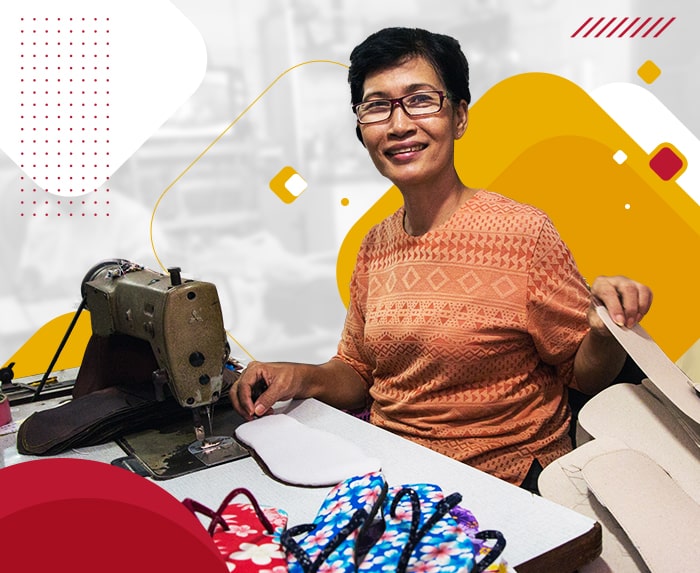Held on Monday, February 19th, 2024
Time
- 7:15 a.m - Chile, Argentina, Brazil
- 11:15 a.m - France, Spain, Serbia (CET)
- 12:15 p.m - South Africa, Bulgaria (EET)
- 1:15 p.m - Kenya, Uganda, Ethiopia, (EAT)
- 3:15 p.m - Maldives, Pakistan
- 3:45 p.m - India, Sri Lanka
- 4:00 p.m - Nepal
- 4:15 p.m - Bangladesh, Bhutan
- 5:15 p.m - Thailand, Cambodia, Laos (ICT)
- 6:15 p.m - Philippines
About the session
This side session shed light on the often overlooked parts of the footwear and garment supply chain – the workers working in workshops or in the confines of their homes. Through new analysis by the International Labour Organization in Cambodia, Bangladesh, India and Indonesia, we explored the nature of informal employment within these supply chains. The session also launched the new study being conducted by HomeNet International, which will explore the shift in work and working conditions for homeworkers in garment and footwear supply chains post Covid-19 pandemic.
The session quantified informal employment outside factories, discussed why factories subcontract to workshops and homeworkers, highlighted the challenges and advantages of working in workshops or from home, and elaborated on what formalisation means to homeworkers.
Our aim is for policy makers, business, unions and advocacy organisations to gain a deeper understanding of employment outside factories and how Human Rights due diligence legislation can either support or undermine the livelihoods of these workers.
Interpretation
Youtube recording
Important Resources:
- “Innovative Legislation in Australia Protects Homeworkers in the Garment and Footwear Sector”- WIEGO Organizing (Law) Brief No 14
- “How Homeworkers Can Use the OECD Due Diligence Guidance for Responsible Supply Chains in the Garment and Footwear Sector” - WIEGO
- “Supply Chain Governance - Arguments for worker driven enforcement” by Marlese von Broembsen.
- “Working from home - From invisibility to decent work” - International Labour Organization
- OpenSupply Hub
- Transparency Pledge


